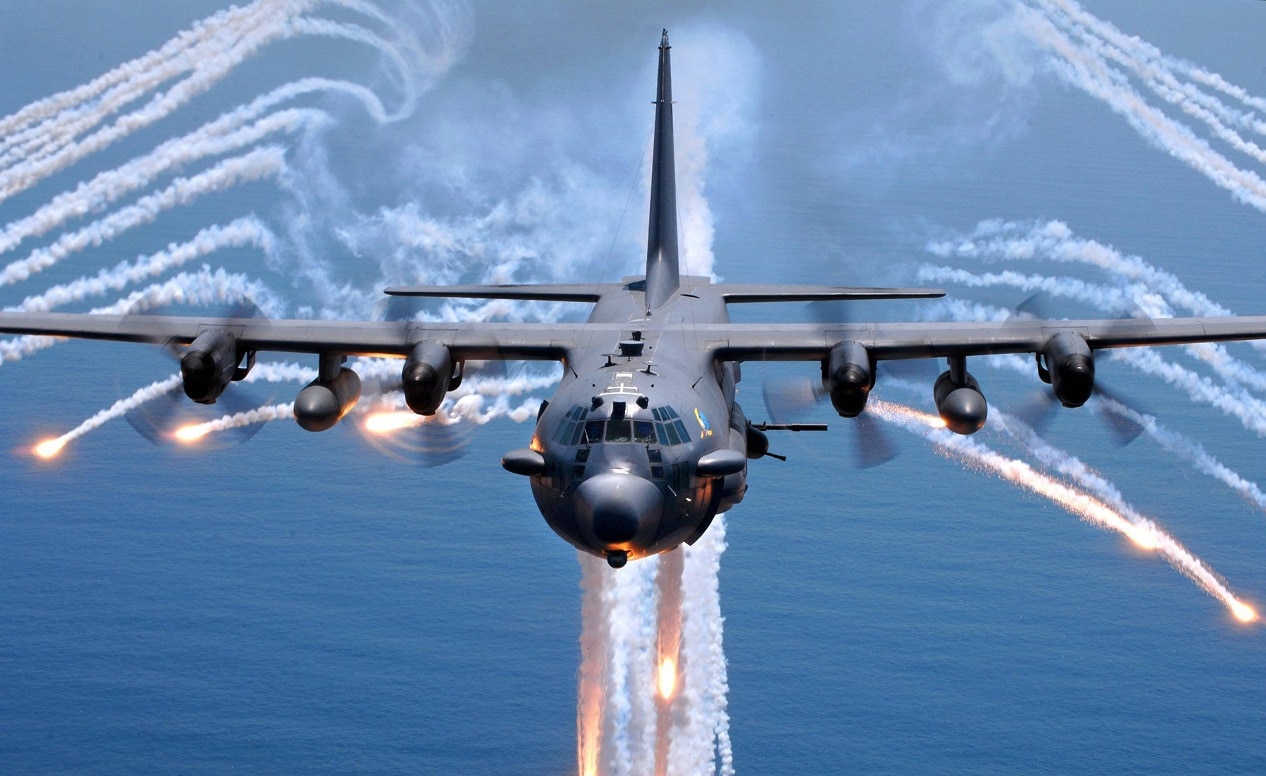A few weeks ago, U.S. Air Commandos, aviators, and special operations forces from around the world came together in a large-scale exercise.
During Bold Quest 21-2, American and partner and allied special operations troops got to improve their interoperability, targeting, and airstrike procedures while working with some of the most lethal airframes in the world.
Commandos and AC-130 Gunships
Bold Quest brought together Joint Terminal Attack Controllers (JTACs) and aircraft and allowed them to work on close air support concepts and procedures. During the past 20 years, close air support became very common, and the importance of JTACs grew significantly to the point of being almost mandatory in every tactical conventional and special operations unit.
AC-130J Ghostrider gunships from the U.S. Air Force Special Operations Command’s (AFSOC) 73rd Special Operations Squadron provided much of the air muscle for the participating JTACs to train with.
Through several live-fire scenarios, JTACs and AC-130 gunships, and other close air support platforms worked together to find new and more efficient ways to communicate when calling airstrikes.
“My job is to be a point of contact for the units and countries that are here. I’m here to meet face-to-face and shake hands, to build relationships and have dialogue between someone that knows the weapon system and the people who are going to be using it. I handle a lot of scheduling conflicts, and I have to be the one to put my hand up and let everyone know what the aircraft capabilities are and what it can’t do,” Air Force 1st Lieutenant Will Bachmann, a pilot assigned to the 73rd Special Operations Squadron, said in a press release.
As a recurring exercise, Bold Quest brings together allied and partner nations every few months. As a result, ideas and tactics, techniques, and procedures circulate, making the participants better in their craft and more effective on the battlefield. In addition, joint training events are the best way to build interoperability short of war.
Moreover, as an international training event, Bold Quest 21 had special operations participants from other countries. For example, Norway’s elite counterterrorism special operations units, the Forsvarets Spesialkommando (FSK), sent operators to the U.S. to participate in the exercise.
“We are here to demonstrate our capabilities to utilize digitally aided close air support. The DACAS system allows us to generate good data on the target and send them in quick bursts rather than having a lot of voice communication with the aircraft. NORSOF [Norwegian Special Operations Forces] and the gunship community have a long and good relationship. We just want to show the coalition that Norway is looking ahead in support of the DACAS mission,” Jay, a Norwegian JTAC instructor, and evaluator from FSK, said.
DACAS: Better and Safer Close Air Support
In addition to the standard training events that usually take place during Bold Quest, the participants of this iteration got to focus a lot on the Digitally Aided Close Air Support (DACAS) concept, which aims to modernize close air support.
DACAS is focused on the quick and efficient exchange of information between the ground element and supporting aircraft, aiming for less time spent communicating on the radio, thereby decreasing the chance for miscommunication between the JTAC and the pilot that could have fatal consequences.
“If you imagine Call of Duty, where you have a mini-map that has blue and red dots, our DACAS systems allow us to see that in real-time. The JTACs can use the system to ping potential threats and we can do the same allowing us to share the data faster and make decisions on how to engage,” Bachmann added.
Stavros Atlamazoglou is a defense journalist and military expert specializing in special operations, a Hellenic Army veteran (national service with the 575th Marine Battalion and Army HQ), and a Johns Hopkins University graduate.

